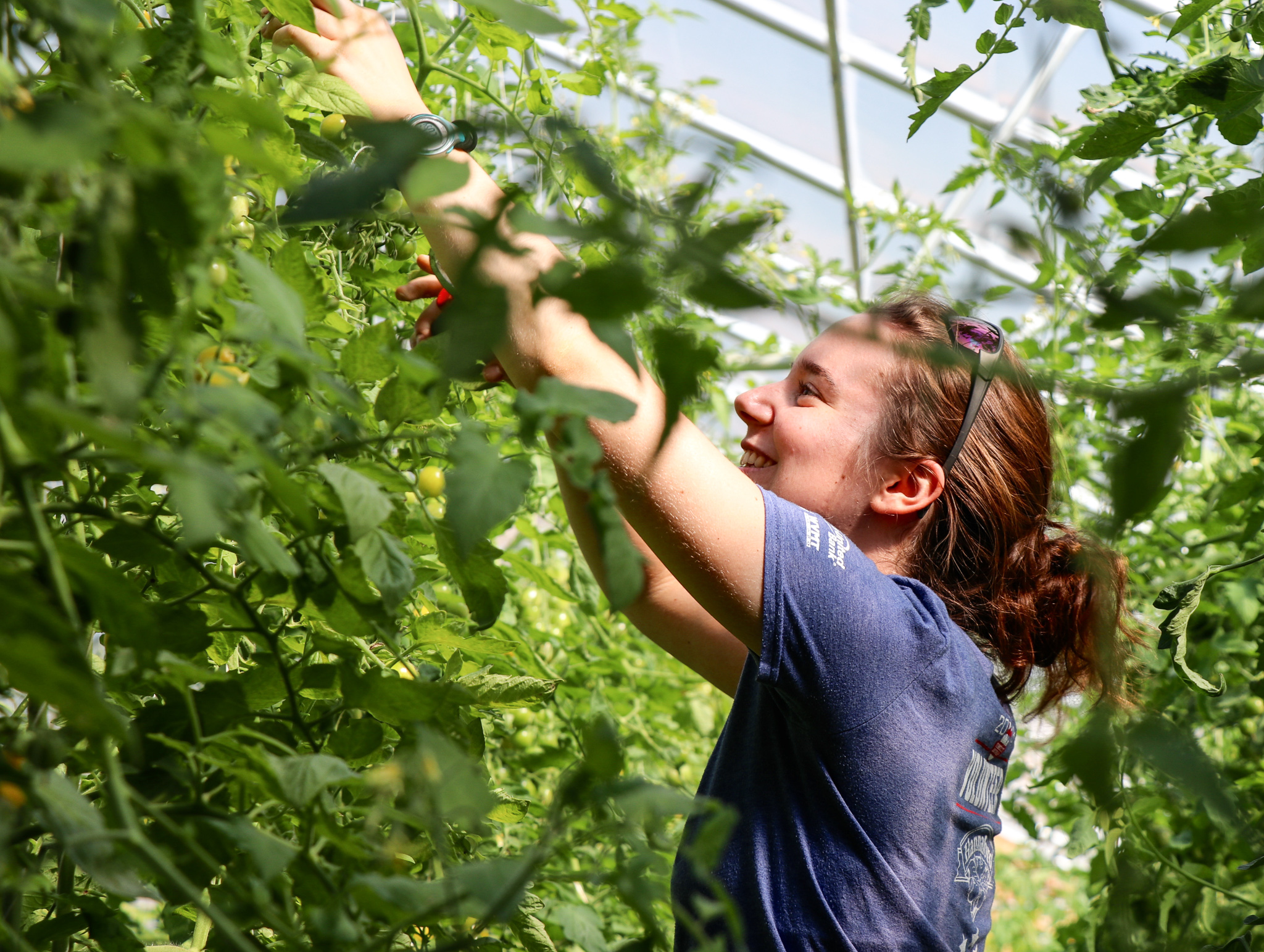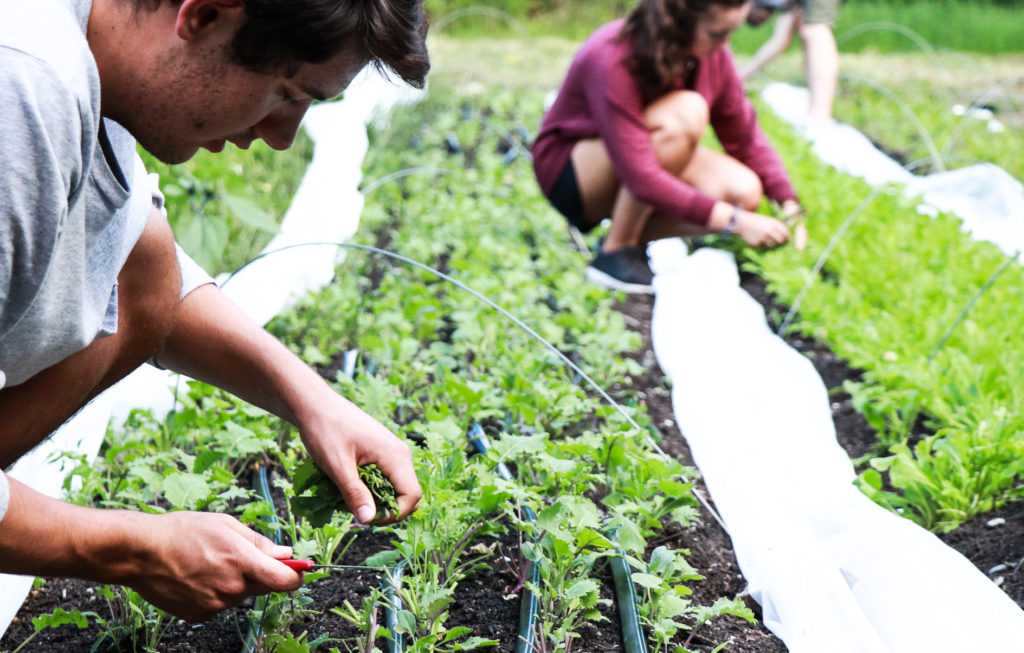
By Melanie Roberge, Staff Writer
Vibrant, green, and full of life, the Farm at Saint Michael’s College is home to a wide range of crops, a handful of devoted student workers, and the shared goal of producing the best locally sourced food possible – all while battling the impacts of climate change.
To overcome these challenges such as a changing seasonal calendar or extreme weather events, student workers and volunteers put all their efforts towards to produce locally sourced fruits and vegetables for the campus dining hall, weekly farm stands, and community gatherings. This often means bed prepping, flipping beds, searching for hornworms, mowing, weeding, and more. Each week begins on Monday morning with a weekly harvest. Environmental studies major Annabelle Elvidge, ‘20, completed an internship on the farm this past summer. She began her non-harvest days off with a field walk, taking note of all the tasks that need to be done.
“We arrive in the morning, hair up and hands washed,” Elvidge describes. “We have a list of what we are going to be harvesting that day, and we either divide and conquer or we work together to cruise through the tasks.”
The education and dedication that goes into growing a number of varieties of tomatoes, squash, peppers, lettuce, and much more is essential to the success of the farm. Climate change remains one factor that forces farmers to learn to adapt to continue successfully to grow all these plants.

“It’s constantly changing,” said Jonah Fanelli, the assistant advisor of the farm. “Basically the climate is just getting more mild which means we can grow different plants. If you think of plants that are native to Vermont you think of apples. Now we can grow plants that are more typically associated with southern states and mid atlantic states.” Peaches are one example Fanelli describes as a crop that benefits from this more mild climate. In past years peaches wouldn’t have grown well in Vermont but with the warmer climate they now thrive here on the Saint Michael’s Farm.
Based on research conducted by UVM agroecology researcher Alissa White, the 2017-2018 New England Adaptation Survey concluded the major climate change impacts farmers are most concerned about are unpredictable temperatures, increased drought, and loss of nutrients due to heavy precipitation. These climate changes are affecting and changing the practices of farmers all over New England. Because climate change is recorded over many years and the Farm at Saint Michael’s College is small and relatively new, there aren’t many specific physical changes compared to those on larger farms.
“It’s a challenge just because it’s different than what we’ve done in the past, but that’s sort of the beauty of a place like this, that we can change pretty quickly,” Fanelli said “It’s not like we have acres and acres and acres of one kind of crop that grows just one way in just one climate. We have the flexibility to change what we grow from season to season.”
A dedicated team of student farmers adjust their crop plans to accommodate current climate challenges. Because of the reduction in resources to transport the food, organic practices used on the farm actually benefit the environment rather than take away from it, said Brett Matzke, a senior environmental education intern at the Farm. By treating the environment and the farmland with respect, the soil stays healthy and the produce is actually healthier to eat, benefiting both the consumers and the environment, he said.
“One thing that we do at the farm is crop rotation and that is is a good way to continue the health of your soil,” Matzke said. “The effects of people purchasing and supporting local food makes a big difference. In terms of working on a farm, it’s not so much realizing the effects of climate change but recognizing your impact on reversing climate change.”

